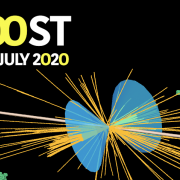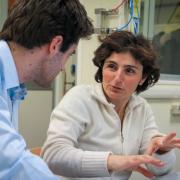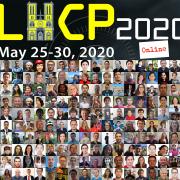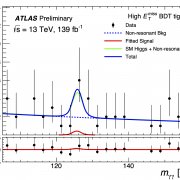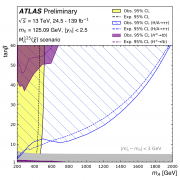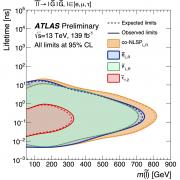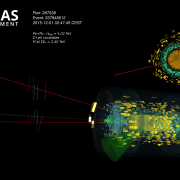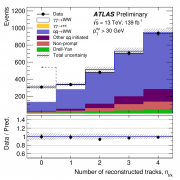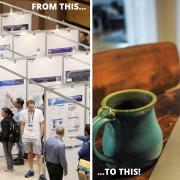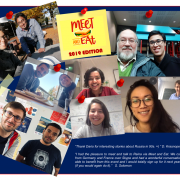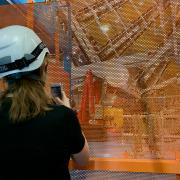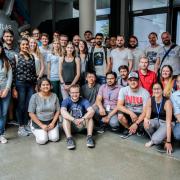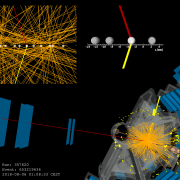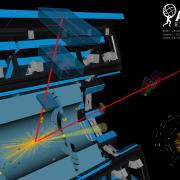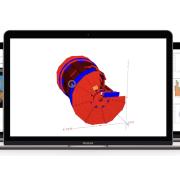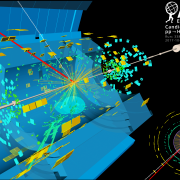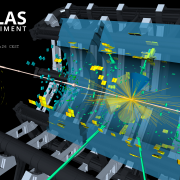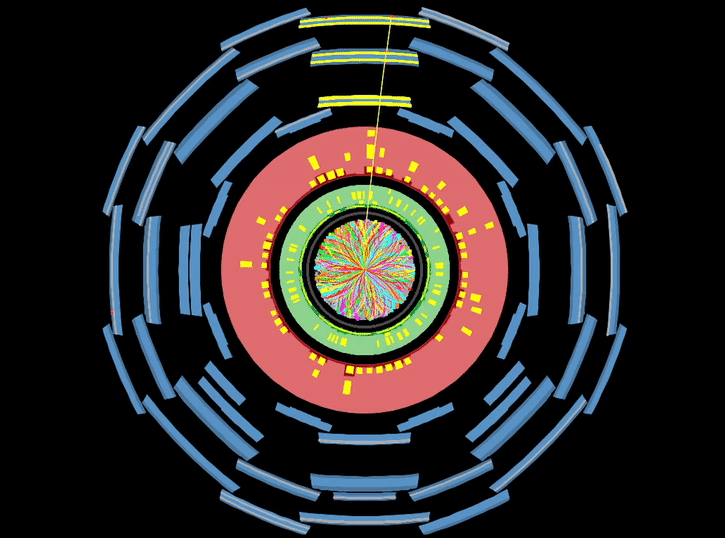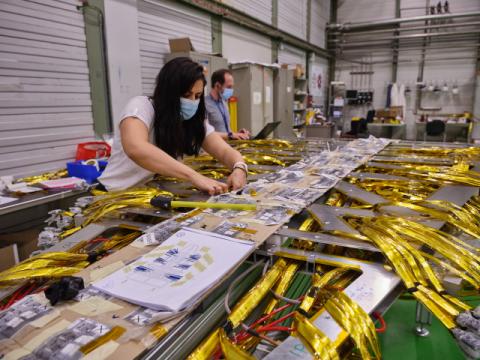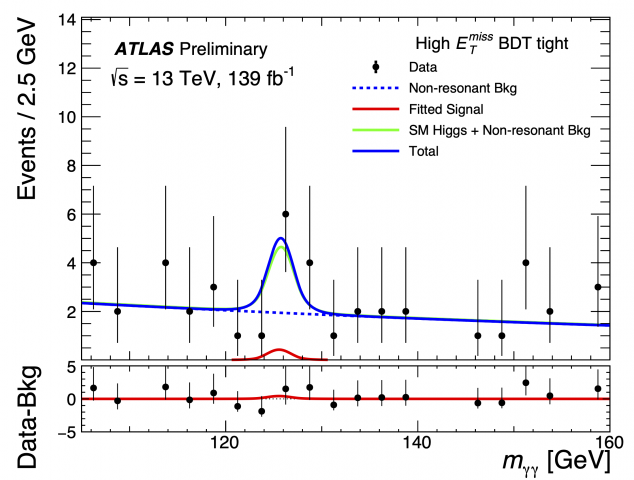Access to Collaboration Site and Physics Results
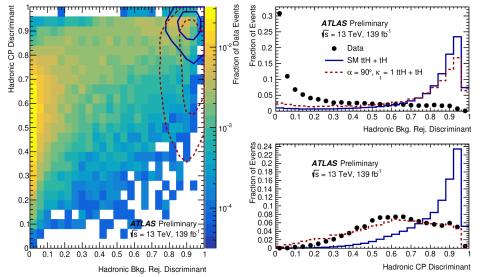
Searching for new sources of matter–antimatter symmetry breaking in Higgs boson interaction with top quarks
– When a particle is transformed into its antiparticle and its spatial coordinates inverted, the laws of physics are required to stay the same – or so we thought. This symmetry – known as “CP symmetry” (Charge conjugation and Parity symmetry) – was considered to be exact until 1964, when a study of the kaon particle system led to the discovery of “CP violation”. In a new result presented today, the ATLAS Collaboration performed a direct test of the CP properties of the interaction between the Higgs boson and top quarks. The result is based on an analysis of the full LHC Run-2 dataset, looking at collision events where the Higgs boson is produced in association with one or two top quarks, and in turn decays into two photons.Read more →
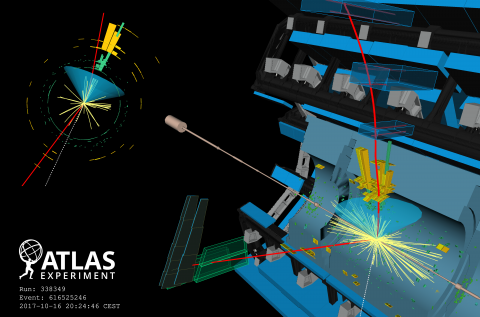
Measuring the beauty of the Higgs boson
– Two years ago, the Higgs boson was observed decaying to a pair of beauty-quarks (H→bb), moving its study from the “discovery era” to the “measurement era”. In new results presented today, the ATLAS Collaboration studied the full LHC Run 2 dataset to give an updated measurement of H→bb, where the Higgs boson is produced in association with a vector boson (W or Z).Read more →
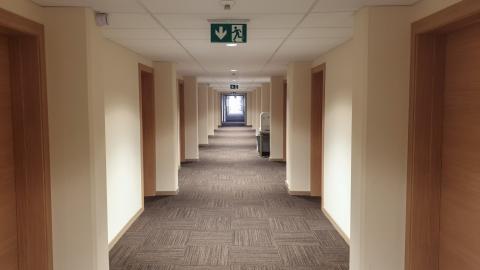
ATLAS Collaboration enters active “Safe Mode”
– The global health crisis caused by COVID-19 has impacted every aspect of life. Much of the world’s population are sheltering in place, with ATLAS Collaboration members similarly affected.Read more →
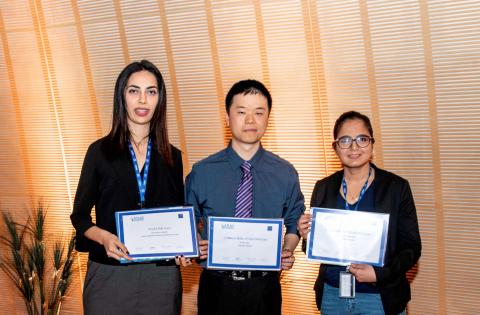
ATLAS PhD Grant continues its support of up-and-coming talents
– At an award ceremony in the Globe of Science and Innovation, the ATLAS Collaboration celebrated the new recipients of the ATLAS PhD Grant: Prajita Bhattarai, Hassnae El Jarrari and Albert Kong.Read more →
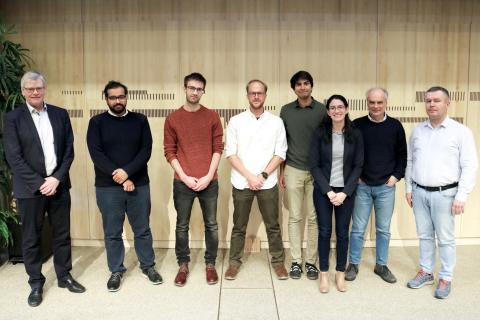
ATLAS Thesis Awards: And the winners are…
– With over 5000 members in 181 institutions, contributions to the ATLAS Collaboration can take a variety of forms. Every February, ATLAS celebrates the outstanding work of one particular set of members: its PhD students.Read more →
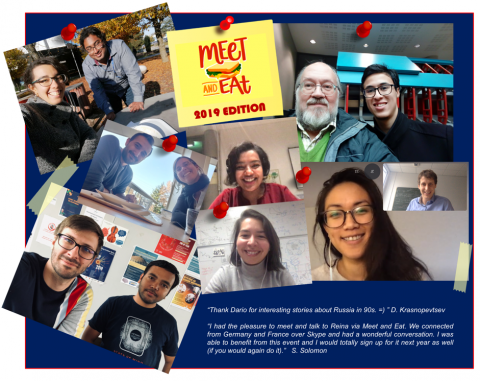
Serving up new winter recipes with the ATLAS Early Career Scientist Board
– In 2019, I joined the ATLAS Early Career Scientist Board (ECSB): a special advisory group dedicated to assisting the ATLAS Collaboration in building an environment where the full scientific potential of scientists at the start of their career can be realised. The board organises several activities for the ATLAS community (you may have seen all of our summer activities described in this blog). I was actively involved in the winter activities. They were all fantastic experiences to improve social relationships in a 5000-people collaboration.Read more →
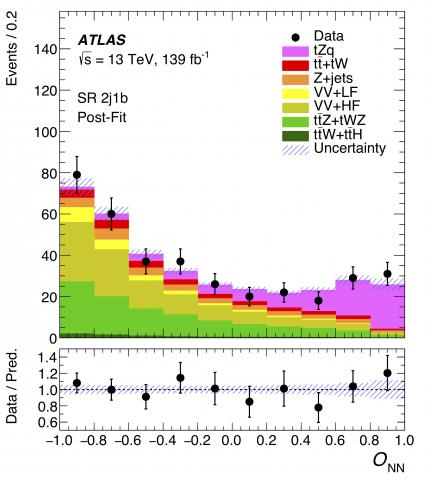
25 years on: a single top quark partners with the Z boson
– A quarter-century after its discovery, physicists at the ATLAS Experiment are gaining new insight into the heaviest-known particle: the top quark. The huge amount of data collected during Run 2 of the LHC (2015-2018) has allowed physicists to study rare production processes of the top quark in great detail, including its production in association with other heavy elementary particles.Read more →
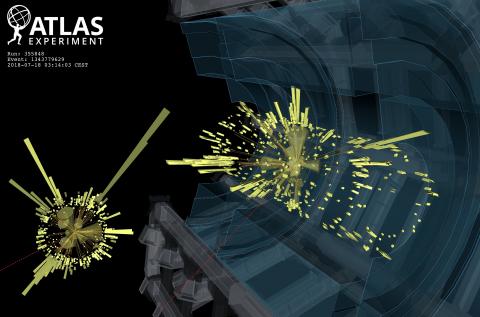
Searching for natural supersymmetry using novel techniques
– In new results presented today at CERN, the ATLAS Experiment’s search for supersymmetry (SUSY) reached new levels of sensitivity. The results examine a popular SUSY extension studied at the Large Hadron Collider (LHC): the “Minimal Supersymmetric Standard Model” (MSSM), which includes the minimum required number of new particles and interactions to make predictions at the LHC energies.Read more →
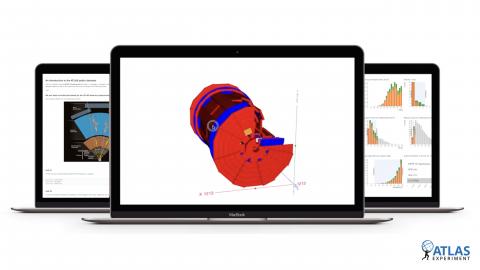
ATLAS Experiment releases 13 TeV Open Data for Science Education
– The ATLAS Collaboration at CERN has just released the first open dataset from the Large Hadron Collider’s (LHC) highest-energy run at 13 teraelectronvolts (TeV). The new release is specially developed for science education, underlining the Collaboration’s long-standing commitment to students and teachers using open-access ATLAS data and related tools.Read more →
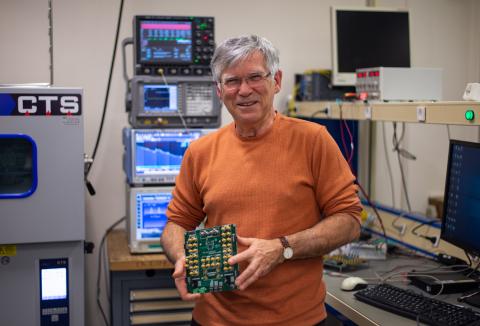
In conversation with Philippe Farthouat, a driving force behind ATLAS electronics
– Philippe Farthouat has played a critical role in electronics development since the beginning of ATLAS, from design and prototyping to testing and installation. He has been the overall ATLAS electronics coordinator since 1999.Read more →




